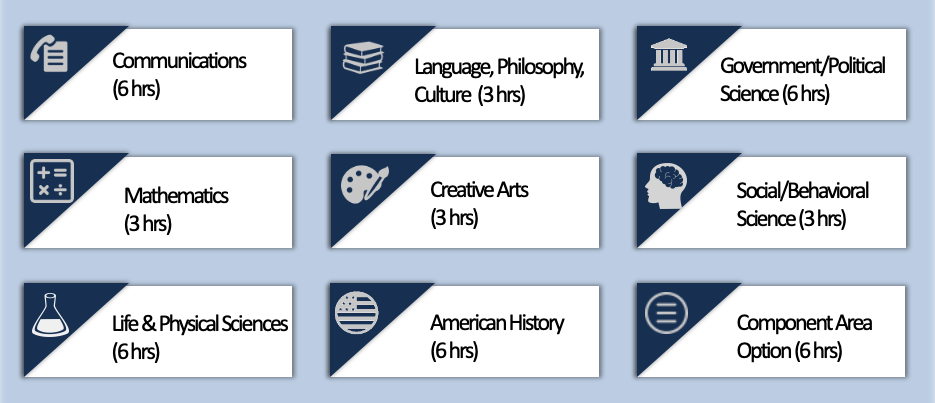Background
General education encompasses the skills and knowledge that we expect of every college graduate. These include such qualities as:
- An informed understanding of history, science, art, government, humanities, geography,
other cultures, and much else - Good oral and written communication skills
- Technological skills
- Evaluating the quality of information
- Problem-solving skills
- Proficiency in college level math
- Effective team building skills
- Knowing how to learn on their own
Another way of thinking about general education is that it is those skills and knowledge that
students will carry with them long after they have graduated.
General Education in the Core Curriculum
For those involved in workforce programs, the general education student learning outcomes largely parallel the “necessary skills” or SCANS competencies so fundamental to those programs.
The Southern Association of Colleges and Schools Commission on Colleges (SACSCOC) “Principles of Accreditation” require that all degree plans, both workforce and transfer, have 15 credit hours in General Education courses. These must include at least one 3-hour course from:
- Math and natural sciences
- Humanities/fine arts
- Social/behavioral sciences
with additional coursework in other important areas, such as communication. Students must include at least one course in each area from the General Education list in their ACC coursework in order to earn a degree.
For academic transfer degrees, general education requirements are met within the context of the Core Curriculum. The Core Curriculum is defined by the Texas Higher Education Coordinating Board.
As put into practice at ACC, a student must take 42 credit hours spread across several disciplines, including:
- Communications (6 credit hours)
- Mathematics (3 credit hours)
- Life & Physical Sciences (6 credit hours)
- Language, Philosophy, & Culture (3 credit hours)
- Creative Arts (3 credit hours)
- American History (6 credit hours)
- Government/Political Science (6 credit hours)
- Social and Behavioral Sciences (3 credit hours)
- Component Area Option (6 credit hours)
The Component Area Option (CAO) is defined by ACC as encompassing certain Speech courses, Student Success courses, and science labs, among others. Overload courses in another Component Area may be applied to the CAO as well.

General education touches on nearly every aspect of a student’s academic experience. The student learning outcomes associated with general education are supported by activities in the classroom, in the lab, in the field, and even outside of class. They tie directly into student learning outcomes at the course-level, program-level, and higher.
For example, the writing skills a student develops from classroom activities in English Composition directly supports their achievement of written communication skills. But so too does writing a review for a history class or a laboratory report in a chemistry class. Although the work done in a particular course is performed so as to support the student’s achievement of the expected outcomes of that course, they also support the outcomes that a graduate of that program would be expected to attain.
As the example above with writing shows, the same skills are typically reinforced in many different courses in many different programs and are thus taught across the curriculum as the student progresses through their academic career and help to shape the experiences of every student.
Back to Top
